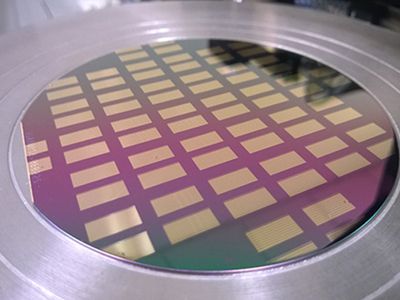This course treats the most important component in all integrated circuits - the MOSFET-transistor that is produced in silicon with nanometer dimensions. The focus is on low power CMOS-technology.
Course main content
- Basic physics for the MOS-system and formulation of approximate current-voltage relations for the MOS-transistor. Compact physics based models for circuit simulation. Modelling of process corners.
- Scaling theory and technology nodes for CMOS technology.
- Modern CMOS device topologies, SOI and FinFET, 3D-structures including nanowire/sheet.
- Power consumption, crosstalk and scaling of interconnects.
- Memory technologies, charge based, resistive or based on other physical principles.
- New technologies and applications as for instance spintronics, 2D-materials, and 3D-fabrication.
- Circuit design for nanometer CMOS, ASIC, FPGA, design rules, robustness, testing, reliability, error analysis, variability on component, chip and wafer level.
